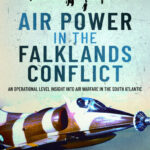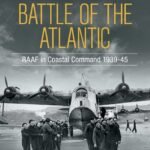
Some classics (?) here: airports, biography, bombing.
Basil Collier, Heavenly Adventurer: Sefton Brancker and the Dawn of British Aviation (London: Secker & Warburg, 1959). I bought this during my PhD and never got around to reading it; as it turns out, no great loss. Brancker is an interesting if understudied figure (the only other biography of him was published in 1935): he held senior staff positions in the RFC from as early as 1913 and then the RAF until 1919; from 1922 he was the Director of Civil Aviation in the Air Ministry; in 1930 he was killed in the R101 disaster. And Collier should have been a good choice, as among other things he’d served as a RAF staff officer himself (intelligence) and then became an official historian (The Defence of the United Kingdom) and authorised biographer (Dowding). But despite the subtitle, this book is not particularly focused on what Brancker may have contributed to the development of aviation, before, during or after the war, or even particularly what he thought about it. You get a fair sense of the development of his career, and to a lesser extent his personal life; otherwise almost nothing about his life before or outside aviation. Nor is there much attempt at analysis, except in five chapters (out of twenty-eight) which, oddly, are concerned with the so-called ‘English Dreyfus case’, i.e. the dismissal of Violet Douglas-Pennant from the position of Commandant of the Women’s Royal Air Force, in which Brancker played a small though admittedly important role. And to top it all off, I found Collier’s style is annoyingly elliptical. That’s not to say this book is all bad (I didn’t realise that Brancker was the first aeroplane passenger in India, as early as 1910, and there’s some interest in the portrait of RFC politics). But as you can probably tell, I think Brancker deserves a better biography than this.
Gillian Fuller and Ross Harley, Aviopolis: A Book about Airports (London: Black Dog Pub Limited, 2004). Part of a pioneering multimedia project by Fuller and Harley, two UNSW academics working at the intersections of art, mobility studies and critical theory, Aviopolis is not only a book but was also a website (aviopolis.com, c. 2003–2021). The book in turn consists of short essays, maps, infographics and charts, and many photos. These different aspects are all devoted to exploring airports (the big ones, anyway) as a new kind of city, ‘a mutant geometry, a mobile polis of invasive security procedures and hyper-surveillance mixed in with the comfy banality of global franchising’ (11). Some of the concepts deployed, such as the airport as non-space (i.e. usually not a place to go to in and of itself, but merely in order to get to somewhere else) are now fairly commonplace (though less so when Aviopolis was published) but others were new to me (such as the idea of airports terraforming their surroundings into terminal cities). While this might suggest it’s a difficult read, it’s quite short and there are, as noted, lots of pictures. So while I’m not sure the argument that ‘this new type of life in the air is changing everything on the ground’ (9) is sustained, Aviopolis serves as a good introduction to how airports might be good to think with.
Martin Middlebrook, The Battle of Hamburg: Allied Bomber Forces against a German City in 1943 (London: Cassell & Co., 2000). I’m not sure I’ve ever read any of Middlebrook’s books before, but I found this to be an excellent example of the kind of popular military history for which he’s well known. There are no footnotes and just a single page of bibliography, but Middlebrook located many Allied and German (military and civilian) participants and used their — often harrowing — testimonies to great effect.((Edgar Pickles, who was the subject of a biography I covered in the first post in this series, gets a mention by way of an account by his navigator.)) His habit of heavily signposting what he is doing and why (e.g. ‘I must now declare […] This book will use […] The reader is asked to […] Please remember […]’ (144)) could have been wearying but I found it quite disarming, and it helped move the book from being mere narrative to a more analytical mode. Bearing in mind that The Battle of Hamburg was originally published in 1980 and so is a bit dated, Keith Lowe’s heavily-researched Inferno: The Devastation of Hamburg, 1943 (London: Penguin, 2007) is still to be preferred (and it’s also an excellent read). But if this has been sitting on your bookshelf for a decade or two and you were wondering if it was still worth reading, you could certainly do worse things with your time.
![]() This work is licensed under a Creative Commons Attribution-NonCommercial-NoDerivatives 4.0 International License.
Permissions beyond the scope of this license may be available at http://airminded.org/copyright/.
This work is licensed under a Creative Commons Attribution-NonCommercial-NoDerivatives 4.0 International License.
Permissions beyond the scope of this license may be available at http://airminded.org/copyright/.





